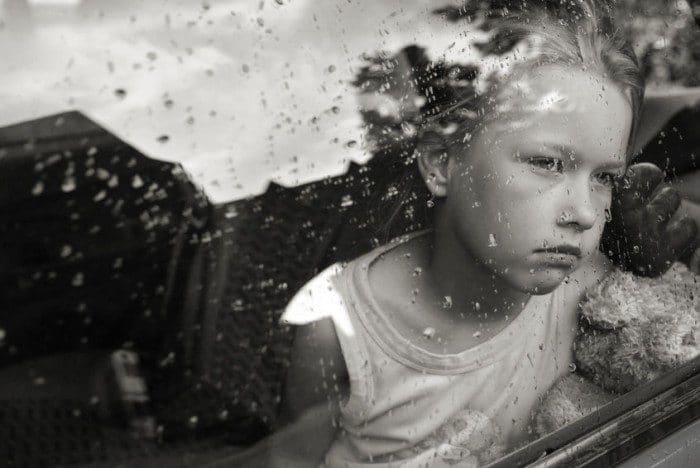Affective deprivation is an increasingly worrying problem in a society where many parents are forced to spend much of the day working, so they barely have time for their children. As a result, they buy them toys with which to compensate for the lack of attention. However, similar situations give way to a lack of affection because no toy can replace the love and attention of parents.
In fact, children who spend many hours in front of the television or with video games are not enjoying the affection that parents should offer. Therefore, this educational style in which leaves little ones in the hands of technology is highly impersonal and can lead to emotional deprivation.
You might be interested in baby names or the following topic 3 ways to raise an empathic child
What is emotional deprivation?
Affective deprivation it is a situation of lack of care, attention, attachment and protection by the parents or the child’s usual caregiver. This problem can be caused by abandonment and abuse, although it can also be seen in emotionally absent parents or distant who do not spend quality time with their children.
As a result, that child, who is actually very sensitive emotionally and is prepared to pick up the most subtle extraverbal cues from adults, he does not feel loved, rather he perceives that he is rejected or ignored within his family.
In fact, we must bear in mind that although young children are not fully aware of what this means, they intuit that they are growing up in an environment where they do not receive the attention and affection they need. In a certain way , those children know that they do not have a person to hold them. And that feeling can be terrifying.

How does affective deprivation manifest itself?
Each child is different and reacts differently to an emotional situation. affective lack. Some may withdraw into their inner world and become fearful and shy, but others may express their discomfort through to anger and aggressiveness. Even so, some of the most universal symptoms of emotional deprivation are:
- Fears and phobias, especially related to abandonment.
- Problems expressing feelings assertively.
- Inability to control impulses, which can lead to aggressive behaviors.
- General mistrust of the majority of people, these are children who find it difficult to trust others, as if something inside them was “broken”.
- Anxiety disorder or attention deficit disorder.
- Sudden changes in behavior and emotional lability.
- Poor social skills and poorly developed language for age.
What are its consequences?
A situation of lack of affection causes a great desire for affection in the child, as well as a deep fear of losing loved ones. As a result, that little one remains in a state of permanent anxiety, in search of affective relationships that can satisfy that need for love and security.
In fact, we must take into account realize that children need affection, caresses, kisses and hugs to grow. It is not enough to feed a baby, it is necessary to provide a stimulating, safe and loving environment. Shows of affection are beneficial for the formation of her personality but also for her brain maturation. Without these signs of love, the neuronal development of a child is not completed, and this can generate different problems.
For example, lack of affection generally leads to the development of a personality insecure, characterized by emotional immaturity, individualism and identity problems. It has also been appreciated that these children, when they grow up, have problems maintaining stable interpersonal relationships and often suffer from profound conflicts of values.
